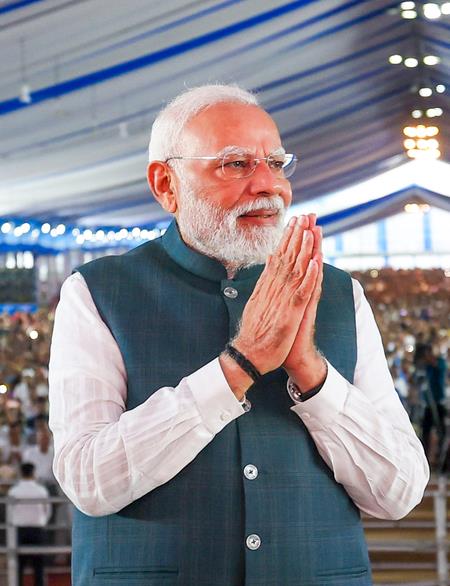Govt Paving Way For Cleaner Streets, Better Housing, Faster Metros, Greener Cities In New India: PM Modi
Responding to an article written by Union Minister Hardeep Singh Puri, the Prime Minister said:“Indian cities are turning into engines of growth! Union Minister Hardeep Singh Puri outlines how consistent efforts of the government are paving the way for cleaner streets, better housing, faster Metros and greener cities.”
The minister has stated that“Indian cities are again on that path to being modern yet humane, ambitious yet inclusive, global in outlook yet rooted in our values.”
The minister further states that "even as we demand more from our cities, we must also pause to acknowledge the distance we have already travelled. For decades after Independence, India's urban spaces were an afterthought. Jawaharlal Nehru's fascination with Soviet-style centralisation gave us the likes of Shastri Bhavan and Udyog Bhavan, concrete monoliths already crumbling by the 1990s, monuments to bureaucracy rather than service.
"By the 2010s, central Delhi presented a dismal sight: Potholed avenues, drab and leaking government buildings, and peripheral roads in the National Capital Region (NCR) that were hopelessly jammed. Expressways were scarce, Metros were confined to a handful of cities, and civic infrastructure was visibly decaying. A country aspiring to global leadership had a capital city that reflected neglect."
He further states, "Prime Minister Narendra Modi changed that trajectory. He placed cities at the heart of the national development agenda, treating them not as burdens to be managed but as engines of growth and symbols of pride. The transformation is visible everywhere. The Central Vista redevelopment turned Kartavya Path into a people's space, the new Parliament building into a future-ready institution, and Kartavya Bhawan into a streamlined hub for governance. Where once there was decay, there is now ambition and confidence."
The scale of this change is backed by numbers. Between 2004 and 2014, cumulative central investment in India's urban sector was around ₹1.57 lakh crore. Since 2014, that figure has risen to nearly ₹28.5 lakh crore, a 16-fold increase This unprecedented financial commitment is reshaping the urban fabric at a pace India had never seen before, Puri further stated.
"India's broader economic and digital surge amplifies this momentum. Today, we are the world's fourth-largest economy at roughly $4.2 trillion, with digital rails powering everyday life. The Metro revolution illustrates the transformation on the ground. In 2014, India had about 248 km of operational Metro across five cities. Today, over 1,000 km span more than 23 cities, carrying more than one crore passengers daily. Dozens of new corridors are under construction, from Pune and Nagpur to Surat and Agra, making urban commutes faster, cleaner and safer. This is not just steel and concrete; it is reduced travel times, cleaner air, and millions of hours of productivity returned to citizens.
"Urban connectivity has been rewritten. NCR's choked peripheries are being decongested by the newly inaugurated Urban Extension Road II, linking NH-44, NH-9 and Dwarka Expressway to ease traffic at chronic bottlenecks. India's first Regional Rapid Transit System (Delhi–Meerut) is already running on major sections and nearing full commissioning, slashing end-to-end travel to under an hour. These high-speed, integrated systems are defining a new metropolitan logic for a new India," the minister added.

Legal Disclaimer:
MENAFN provides the
information “as is” without warranty of any kind. We do not accept
any responsibility or liability for the accuracy, content, images,
videos, licenses, completeness, legality, or reliability of the information
contained in this article. If you have any complaints or copyright
issues related to this article, kindly contact the provider above.
Most popular stories
Market Research

- What Does The Europe Cryptocurrency Market Report Reveal For 2025?
- United States Kosher Food Market Long-Term Growth & Forecast Outlook 20252033
- Utila Triples Valuation In Six Months As Stablecoin Infrastructure Demand Triggers $22M Extension Round
- Meme Coin Little Pepe Raises Above $24M In Presale With Over 39,000 Holders
- FBS Analysis Highlights How Political Shifts Are Redefining The Next Altcoin Rally
- 1Inch Becomes First Swap Provider Relaunched On OKX Wallet






















Comments
No comment